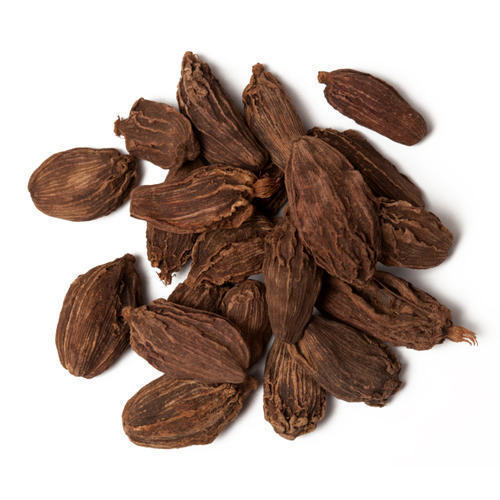Ayurveda, one of the world’s oldest holistic healing systems, originates from India and is rooted in the belief that health and wellness depend on a delicate balance between the mind, body, and spirit. For millennia, this practice has harnessed the power of nature, employing various herbs to treat a multitude of ailments and restore equilibrium in the body. In recent times, there has been a growing interest in Ayurvedic solutions for weight management. Amid the rising concerns about obesity and the hunt for sustainable wellness strategies, these time-tested herbs have gained prominence. Some of the potent herbs that Ayurveda recommends not only aid in weight loss but also help in detoxifying the body and enhancing digestion. By addressing the root cause and not just the symptom, these botanical wonders offer a holistic approach to health, making weight management a natural outcome of overall well-being.
Here are 20 Ayurvedic herbs that have traditionally been used to support weight loss and metabolism:
20 Important Ayurvedic Weight Loss Herbs
- Triphala
- Guggulu
- Garcinia Cambogia – Vrukshamla
- Fenugreek
- Cinnamon
- Vidanga
- Fennel Seeds or saunf
- Green Cardamom
- Black Cardamom
- Shilajit
- Ginger
- Turmeric
- Licorice or Yastimadhu
- Cumin
- Aloevera
- Brahmi
- Ashwagandha
- Punarnava
- Kalonji
- Mustard
#1 Triphala
Triphala is an ancient Ayurvedic formulation made up of three fruits: Amalaki (Emblica Officinalis), Haritaki (Terminalia Chebula), and Bibhitaki (Terminalia Bellirica). This blend is renowned for its synergistic benefits on the digestive system, which is a crucial component when it comes to managing body weight. Amalaki, or Indian Gooseberry, is a natural antioxidant that also aids digestion. Haritaki supports intestinal health and acts as a mild laxative, whereas Bibhitaki helps in reducing the accumulation of fat and fluids in the body.
When ingested, Triphala promotes better digestion and assimilation of nutrients, which can reduce unnecessary weight gain. By improving gut health, it helps in detoxification and elimination, effectively flushing out waste and toxins. This is important because a sluggish metabolism can contribute to unwanted weight gain, and enhancing metabolic efficiency can support the body’s natural propensity for maintaining a balanced weight.
One of the key mechanisms by which Triphala supports a healthy weight is its ability to regulate blood sugar levels. By preventing sudden spikes in blood sugar, it can help to control cravings and prevent overeating, one of the leading causes of weight gain. Moreover, its natural laxative properties help in regularizing bowel movements, alleviating bloating, and facilitating more effective waste removal. Therefore, Triphala not only aids in reducing weight but also in maintaining overall digestive health.
#2 Guggulu
Guggulu, derived from the resin of the Commiphora mukul tree, has been an integral part of Ayurvedic medicine for centuries. Its unique properties make it a valuable herb, especially when addressing metabolic and cardiovascular health.
One of the primary ways Guggulu supports healthy weight management is by enhancing the body’s lipid metabolism. This means it aids in the efficient breakdown of fats, ensuring they are used for energy rather than stored. The active compounds in Guggulu, known as guggulsterones, are believed to stimulate the activity of thyroid hormones. Since the thyroid gland plays a pivotal role in regulating metabolism, an optimized thyroid function can lead to increased metabolic rates, further supporting weight management.
Additionally, Guggulu possesses detoxifying properties, promoting the removal of waste and toxins from the body. By ensuring smooth digestion and elimination processes, it prevents the accumulation of ama, an Ayurvedic term for toxic build-up, which can contribute to unhealthy weight gain.
Furthermore, its anti-inflammatory properties can be beneficial in countering the systemic inflammation often associated with obesity. By reducing this inflammation, Guggulu indirectly aids in alleviating complications and conditions that might deter physical activity, thus promoting a more active lifestyle, crucial for effective weight management.
Incorporating Guggulu into a holistic approach, including a balanced diet and regular exercise, can be a beneficial strategy for those aiming to manage their weight.
#3 Garcinia Cambogia or Vrukshamla
Garcinia Cambogia, a tropical fruit primarily found in Southeast Asia and India, has garnered significant attention for its potential role in supporting healthy weight management. The fruit’s rind contains a biologically active substance called hydroxycitric acid (HCA).
HCA is the principal component responsible for Garcinia’s proposed benefits. Research has indicated several mechanisms through which HCA might impact weight. Firstly, HCA inhibits a key enzyme, citrate lyase, which the body uses to produce fat from carbohydrates. By slowing down this conversion process, Garcinia can theoretically reduce fat storage from excess carbohydrate intake.
Another significant aspect of HCA is its potential effect on appetite. Some studies suggest that it might increase serotonin levels in the brain. Elevated serotonin can lead to reduced appetite, making individuals feel more satiated after meals and reducing the urge to overeat.
Additionally, Garcinia may also improve blood lipid profiles and reduce the accumulation of belly fat. This could have broader implications for overall metabolic health.
While the fruit holds promise, it’s essential to understand that its efficacy can vary among individuals. It’s also crucial to combine its intake with a balanced diet and regular exercise for optimal benefits. It’s always wise to consult with a healthcare professional before incorporating Garcinia or any supplement into a regimen.
#4 Methi or Fenugreek
Methi, commonly known as Fenugreek, has been traditionally used in Indian cuisine and Ayurvedic medicine for its myriad health benefits. One of the prominent benefits that has garnered attention recently is its potential role in aiding weight management.
The seeds of Fenugreek are rich in soluble fiber, which increases the feeling of fullness and reduces appetite. This feeling of satiety means that one is likely to consume fewer calories, thus indirectly assisting in weight management. When consumed, this soluble fiber forms a gel-like substance in the stomach, slowing down digestion and the absorption of carbohydrates. This not only helps in controlling blood sugar levels but also minimizes the storage of fat.
Moreover, Fenugreek contains compounds called galactomannans, which further support its role in promoting satiety. By keeping hunger at bay, it reduces the likelihood of overeating, a crucial factor in weight loss.
Additionally, Methi has the potential to enhance the body’s metabolic rate, thus optimizing the consumption of energy from stored fat.
#5 Cinnamon
Cinnamon, a warm and aromatic spice derived from the bark of the Cinnamomum tree, has long been prized for its culinary and medicinal properties. It is known as twak or Dalchini in ayurveda.
In recent years, there’s been growing interest in its potential benefits for weight loss. Several mechanisms underline these purported benefits.
Firstly, cinnamon is believed to play a role in insulin regulation. By improving insulin sensitivity, cinnamon can help optimize the body’s ability to use sugar from the carbohydrates consumed, reducing fat storage. A study published in the journal “Diabetes Care” found that consuming as little as 1g of cinnamon daily could improve blood sugar, triglyceride, LDL cholesterol, and total cholesterol in people with type 2 diabetes.
Furthermore, cinnamon has thermogenic properties. This means it can increase metabolic activity, leading to greater calorie burn. The spice’s warmth-inducing properties might aid in boosting metabolism, albeit modestly.
Additionally, the natural sweetness of cinnamon can curb sugar cravings, potentially leading to reduced calorie intake. By substituting sugar with cinnamon, individuals can experience the sweet taste without the associated calories.
# 6 Vidanga
Vidanga, scientifically known as Embelia ribes, is a well-known herb in Ayurvedic medicine with various health-promoting properties. One of the emerging interests in Vidanga is its potential role in supporting weight loss.
The mechanisms through which Vidanga might contribute to shedding excess weight can be attributed to its active compounds, which exhibit lipid-lowering and anti-obesity effects. The herb has been traditionally used to promote digestion and combat parasitic infections in the gastrointestinal tract. A healthier, well-functioning digestive system can lead to better nutrient absorption and elimination of waste, indirectly supporting weight management.
Scientific research is still in the nascent stages, but preliminary studies provide a promising outlook. A study published in the “Journal of Ethnopharmacology” highlighted the anti-obesity effects of Embelia ribes extract on lab rats. The research data revealed that the extract significantly reduced body weight, visceral fat weight, and total cholesterol in the serum and liver.
#7 Fennel Seeds or Saunf
Fennel seeds, popularly known as “Saunf” in several regions, have long been a staple in traditional medicinal practices, and in recent years, they have garnered attention for their potential benefits related to weight management.
One of the primary ways fennel seeds can aid in weight reduction is due to their diuretic properties. This means they help increase urine output, assisting in the removal of excess water and sodium from the body, thus reducing bloating and water weight.
Beyond this, fennel seeds are rich in dietary fiber. A study published in the “European Journal of Clinical Nutrition” found that dietary fiber can increase the feeling of fullness, leading to reduced food intake. By promoting satiety, fennel seeds can help in regulating appetite, potentially decreasing overall calorie consumption.
Additionally, the seeds contain a variety of compounds, including anethole, limonene, and quercetin, which possess anti-inflammatory and antioxidant properties. Inflammation and oxidative stress are often linked to obesity and metabolic disorders. By addressing these underlying factors, fennel seeds may provide holistic support to those aiming for weight loss.
# 8 Cardamon
Green cardamom, a spice native to the Indian subcontinent and Indonesia, is not only renowned for its aromatic flavor but also its potential health benefits, including its role in weight loss. The small green pods are packed with antioxidants and essential oils that can play a significant role in metabolism and fat burning.
Several studies have shown that the bioactive compounds in cardamom can aid in combating obesity. One of its major components, cineole, plays a pivotal role in controlling appetite, ensuring that overeating, a primary contributor to weight gain, is kept in check. Additionally, cardamom has been found to possess thermogenic properties. This means it can help in boosting metabolism and increasing the rate at which the body burns calories.
A 2017 study published in the journal “Lipids in Health and Disease” investigated the anti-obesity effects of cardamom powder on overweight and obese pre-diabetic women. The results indicated that subjects who received cardamom showed significant reductions in body weight and body mass index (BMI) compared to the placebo group.
# 9 Black Cardamon or Badi Elaichi
Black cardamom, known scientifically as *Amomum subulatum*, is a popular spice in Asian cuisines and traditional medicine, distinct from its green counterpart. The potential benefits of black cardamom for weight management have been explored in recent studies, and there are several mechanisms through which it may support this endeavor.
First, black cardamom is believed to have diuretic properties, which means it can promote the excretion of excess water from the body, reducing water retention. This can lead to temporary weight reduction, especially in individuals who retain fluids.
The spice is also rich in antioxidants, which play a pivotal role in boosting metabolism. An increased metabolic rate can aid in burning more calories, thereby supporting weight loss. Furthermore, its thermogenic properties can further enhance calorie expenditure, particularly when combined with other thermogenic ingredients.
Research also indicates that black cardamom can help in regulating blood sugar levels. Balanced blood sugar reduces sudden spikes and crashes, which can curtail unhealthy cravings and reduce the intake of excessive calories.
#10 Shilajit
Shilajit, a sticky, tar-like substance found primarily in the rocks of the Himalayas, has been utilized in traditional Ayurvedic medicine for centuries. In recent years, its potential benefits in facilitating weight loss have caught the attention of the wellness community and researchers alike.
At the core of Shilajit’s potential weight management properties is its ability to influence fat metabolism. A study published in the “Journal of Medicinal Food” found that Shilajit supplementation could alter the expression of genes responsible for energy metabolism, leading to reduced body fat accumulation. By influencing the way our body processes and stores fat, Shilajit can potentially play a role in promoting healthier body composition.
Furthermore, Shilajit is rich in fulvic acid, which is known to boost the performance and health of mitochondria – the cell’s energy factories. Enhanced mitochondrial function translates to better energy production and utilization, which can aid in more efficient calorie burning.
Beyond direct impacts on weight loss, Shilajit also offers secondary benefits like enhanced stamina and reduced fatigue, making it easier for individuals to maintain an active lifestyle, crucial for shedding excess weight.
#11 Ginger
Ginger, a widely used spice in culinary traditions across the globe, has also been revered in ancient medicinal practices for its myriad health benefits. Among these, its potential role in weight management has piqued the interest of many.
Scientifically, ginger possesses thermogenic qualities, which means it can help increase the body’s overall temperature. This elevation in temperature can enhance calorie burning, which is fundamental for shedding unwanted pounds. Additionally, ginger can be an appetite suppressant, aiding individuals in consuming fewer calories throughout the day.
Gingerol, the primary bioactive compound in ginger, is believed to be responsible for many of its medicinal effects. Some research data indicate its role in inhibiting the growth of certain gut bacteria linked to obesity. By influencing gut health, ginger may indirectly promote a healthier body weight.
A study published in the “European Journal of Nutrition” in 2019 revealed that ginger supplementation can lead to significant reductions in body weight, waist-hip ratio, and hip ratio in people with obesity. However, while these findings are promising, the exact mechanisms and potential long-term benefits of ginger for weight management need further research.
# 12 Turmeric
Turmeric, a golden-hued spice integral to Indian cuisine and Ayurvedic medicine, has been celebrated for its extensive health benefits for centuries. Among its many properties, its potential role in weight management has piqued scientific interest in recent years.
The active ingredient in turmeric, curcumin, is credited with most of the spice’s therapeutic effects. Research indicates that curcumin can inhibit the growth of fat tissue, reduce inflammation, and increase fat oxidation. Inflammation, it’s worth noting, plays a significant role in obesity and metabolic diseases. By decreasing inflammation, curcumin can indirectly influence weight loss and improve metabolic health.
A study published in the European Review for Medical and Pharmacological Sciences in 2015 suggested that curcumin’s lipid-lowering effect is beneficial in the reduction of weight. Another study from the same year in the journal “BioFactors” showed that curcumin could alter the composition of gut bacteria, which might play a role in combating obesity.
Additionally, curcumin’s role in improving insulin sensitivity can further aid in weight management by ensuring efficient carbohydrate metabolism and reducing the risk of fat accumulation.
#13 Licorice or Yastimadhu
Licorice, also known as Yashtimadhu in Ayurveda, has been utilized for various medicinal purposes across different cultures. One of its intriguing potentials lies in the realm of weight management. Research has provided insights into how this ancient herb can play a role in promoting healthy weight.
A key component in licorice is a compound called “glycyrrhetinic acid”. One study published in the journal “Obesity Research & Clinical Practice” found that participants who consumed a preparation containing this component experienced a significant reduction in body fat mass. The mechanism behind this might be related to the inhibitory effects glycyrrhetinic acid has on a specific enzyme that plays a role in the accumulation of fat.
Furthermore, licorice has properties that can enhance digestion. A healthy digestive system is integral to efficient metabolism, ensuring that food is properly broken down, nutrients are absorbed, and waste is eliminated. This, in turn, can support weight management goals.
#14 Cumin or Jeera
Cumin, a widely used spice in global cuisines, has more recently been recognized for its potential benefits in the realm of weight management. Scientific studies have begun to validate traditional claims about cumin’s role in aiding the weight loss process.
One notable study published in the journal “Complementary Therapies in Clinical Practice” observed the effects of cumin on overweight individuals. Participants who consumed a teaspoon of cumin powder daily, mixed with yogurt, showed significant reductions in body mass index (BMI) and waist circumference compared to those who simply consumed yogurt without cumin.
The mechanisms behind cumin’s potential weight-reducing effects are multifaceted. Firstly, cumin is rich in phytosterols, plant compounds that inhibit the absorption of cholesterol in the digestive tract. This might assist in reducing fat storage in the body. Secondly, cumin is known to boost metabolic rate, thereby aiding the calorie-burning process. Furthermore, it can play a role in improving digestion, which is crucial for weight regulation.
Additionally, the aromatic spice has a distinct flavor that can make meals more satisfying, possibly leading to reduced calorie intake.
#15 Aloe vera
Aloe Vera, often referred to as “Kumari” in Ayurvedic traditions, has been prized for centuries for its plethora of healing properties. In recent years, it has garnered attention for its potential in assisting with weight loss. The succulent plant contains a rich store of vitamins, enzymes, amino acids, and minerals that together enhance the body’s nutrient absorption and improve overall health.
From a weight loss perspective, Aloe Vera’s natural detoxifying properties stand out. It aids in enhancing digestion and reducing inflammation in the gut. A healthy digestive system ensures optimal absorption of nutrients and efficient elimination of toxins, both of which are crucial for maintaining a healthy metabolism.
Furthermore, research has highlighted Aloe Vera’s impact on blood sugar regulation. A study published in the “Journal of Nutritional Science and Vitaminology” in 2013 found that Aloe Vera gel reduced body fat accumulation in obese individuals by improving insulin sensitivity. By stabilizing blood sugar levels, Aloe Vera can reduce hunger and food cravings, indirectly supporting weight management efforts.
Moreover, Aloe Vera’s high fiber content can help individuals feel full, curbing unnecessary caloric intake.
#16 Brahmi
Brahmi, scientifically known as *Bacopa monnieri*, is a renowned herb in traditional Ayurvedic medicine, mainly prized for its cognitive-enhancing properties. Over time, its potential role in weight management has piqued the interest of both traditional practitioners and scientific researchers.
A pivotal way Brahmi assists in weight management is by combating stress. Chronic stress can lead to an increase in cortisol levels, a hormone that can promote fat storage, especially in the abdominal area. By acting as an adaptogen, Brahmi helps in modulating the body’s response to stress and can potentially mitigate cortisol-driven weight gain.
Furthermore, a 2016 study published in the “Journal of Ethnopharmacology” explored the anti-obesity and metabolic improving effects of Brahmi extract on mice. The results indicated that the treated mice displayed a significant reduction in visceral fat accumulation and improved metabolic parameters.
Additionally, Brahmi’s potential to enhance thyroid function may play a role in weight management. The thyroid gland is instrumental in regulating metabolism, and any enhancement in its function can positively affect metabolic rates, thereby contributing to weight loss.
#17 Ashwagandha
Ashwagandha, scientifically known as Withania somnifera, has been traditionally used in Ayurvedic medicine for a plethora of health benefits. One intriguing facet of its potential is its role in supporting weight management.
The underlying mechanism of how Ashwagandha might aid in weight management centers around its adaptogenic properties. Adaptogens are substances that modulate the body’s response to stress, helping to restore normal physiological functions. Chronic stress has been linked to weight gain, primarily due to the overproduction of the stress hormone cortisol. Elevated cortisol levels can lead to increased appetite, cravings for sugary and fatty foods, and fat storage, especially in the abdominal area.
Research suggests that Ashwagandha can help regulate cortisol levels. A study published in the Indian Journal of Psychological Medicine in 2012 found that individuals given Ashwagandha had significantly reduced cortisol levels compared to those on a placebo. This modulation of cortisol can, in turn, reduce the negative impacts of stress on weight.
Furthermore, Ashwagandha has been associated with enhanced stamina and endurance, which could indirectly support weight management by enabling longer and more efficient workouts.
In conclusion, while Ashwagandha’s direct contribution to weight loss remains a topic of ongoing research, its ability to combat stress and modulate cortisol provides promising pathways for its role in supporting healthy weight management.
#18 Punarnava
Punarnava, botanically known as Boerhavia diffusa, is a staple in Ayurvedic medicine. The name “Punarnava” translates to “that which rejuvenates” or “that which renews the body”, reflecting its multifaceted healing properties.
One of the significant benefits of Punarnava is its ability to aid in weight loss. Its diuretic properties are key to this aspect. Diuretics help in eliminating excess water and salts from the body. This not only reduces water weight but also prevents bloating, a common concern for many striving for weight management.
Furthermore, research suggests that Punarnava can support healthy digestion. Proper digestion is essential for efficient metabolism, ensuring that food is converted to energy rather than stored as fat. This also helps maintain an optimal balance of bodily fluids and supports liver function.
A study published in the Journal of Clinical Biochemistry and Nutrition in 2010 revealed that extracts from Boerhavia diffusa possess anti-obesity effects. These extracts inhibited the development of fatty liver in mice subjected to a high-fat diet, suggesting its potential role in preventing fat accumulation.
#19 Kalonji
Kalonji, also known as black seed or Nigella sativa, has been traditionally used in various cultures for its myriad health benefits. Among these, its potential role in weight management has garnered significant attention in recent years.
Several compounds found in Kalonji seeds are believed to be responsible for its weight-regulating effects. Thymoquinone, the primary active component in Kalonji, possesses antioxidant and anti-inflammatory properties, which may help enhance the body’s metabolic rate. An improved metabolic rate implies that the body can burn calories more efficiently, thereby supporting weight management efforts.
Research also suggests that Kalonji may help regulate blood sugar levels. A study published in the “Journal of Diabetes & Metabolic Disorders” in 2013 found that Nigella sativa had a beneficial effect on reducing certain factors related to obesity and improving glucose parameters. By aiding in blood sugar stabilization, Kalonji can help mitigate sudden hunger pangs or cravings, which often lead to overeating.
Furthermore, the seeds have dietary fiber content, promoting a feeling of fullness and reducing excessive calorie intake.
#20 Mustard
Mustard, a pungent-tasting condiment derived from the seeds of the mustard plant, has long been praised for its medicinal properties. One area of interest is its potential role in facilitating weight loss.
The key to mustard’s influence on metabolism lies in its thermogenic properties. Thermogenesis refers to the body’s process of heat production, often linked with increased energy expenditure and fat burning. Mustard seeds contain compounds that can boost the metabolic rate, ensuring the body burns calories more efficiently. A study published in the British Journal of Nutrition found that the consumption of a teaspoon of mustard can boost metabolism by up to 20% for several hours after ingestion.
Additionally, mustard is a source of capsaicin, a compound also found in chili peppers, known to enhance calorie burning. Furthermore, mustard is low in calories, making it a favorable choice as a spice or a condiment in a calorie-controlled diet. Its strong flavor also means that a small amount can be used to make dishes more palatable, reducing the need for other high-calorie ingredients.
Reference
https://pubmed.ncbi.nlm.nih.gov/23251942/
https://www.ncbi.nlm.nih.gov/pmc/articles/PMC7329718/
https://www.ncbi.nlm.nih.gov/pmc/articles/PMC4053034/







Pingback: 6 Important Ayurvedic Treatments for Obesity or Weight Loss
Pingback: Ayurveda Health Benefits and Uses of Makhana-Fox Nut-Euryale ferox
Pingback: Health Benefits of Green Gram - Moong/dal/sprouts- Vigna radiata (mung)
Pingback: Health Benefits of Coriander/cilantro, seeds, leaves, Benefits - Ayurveda Remedies, Tips and Treatment
Pingback: Lemon for Weight Loss, Detox, ED, PCOS, and Diabetes